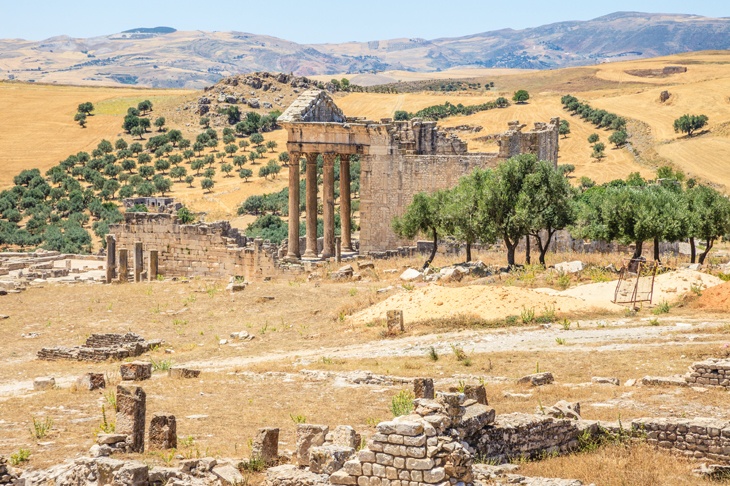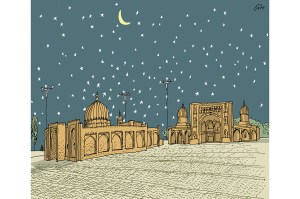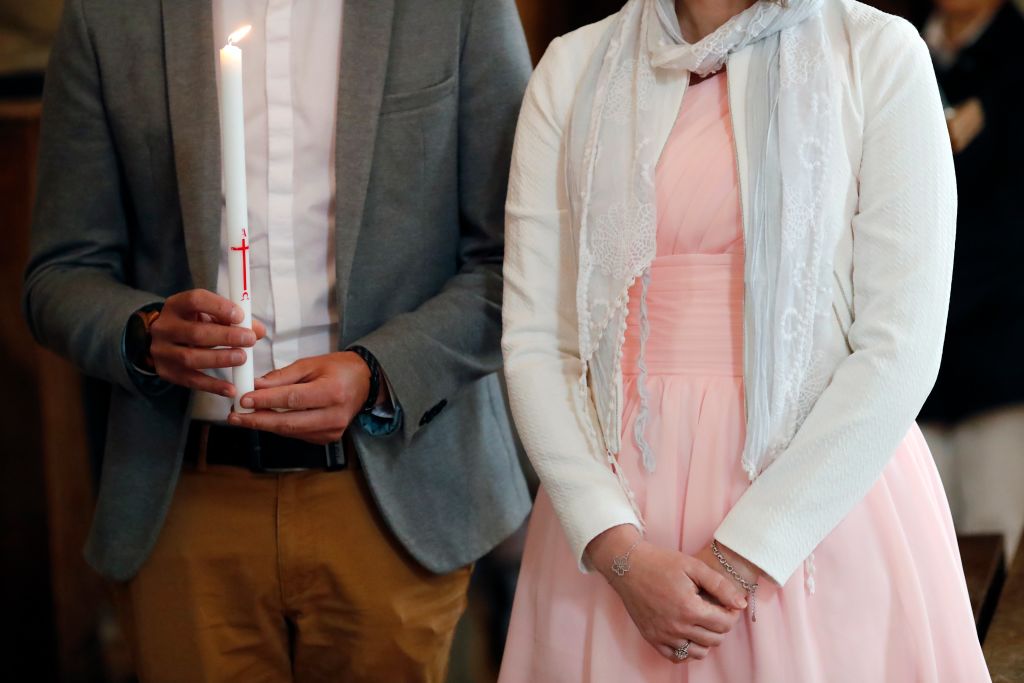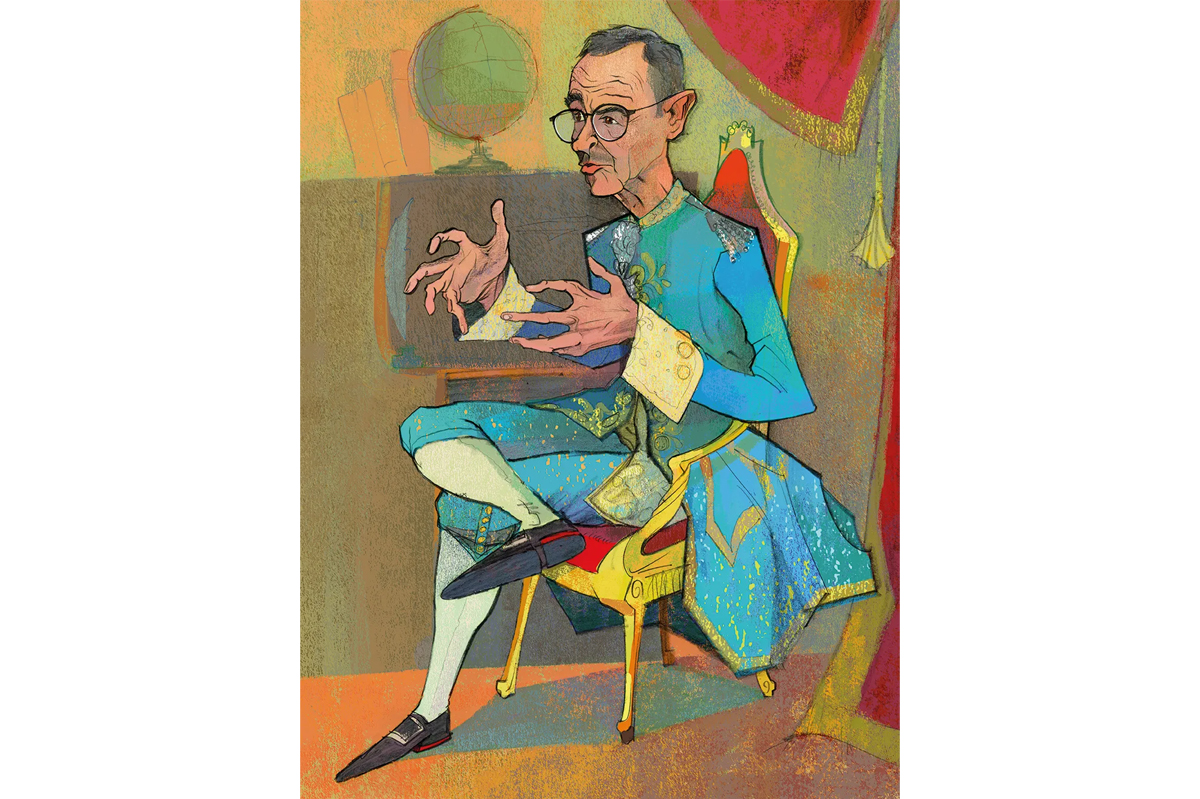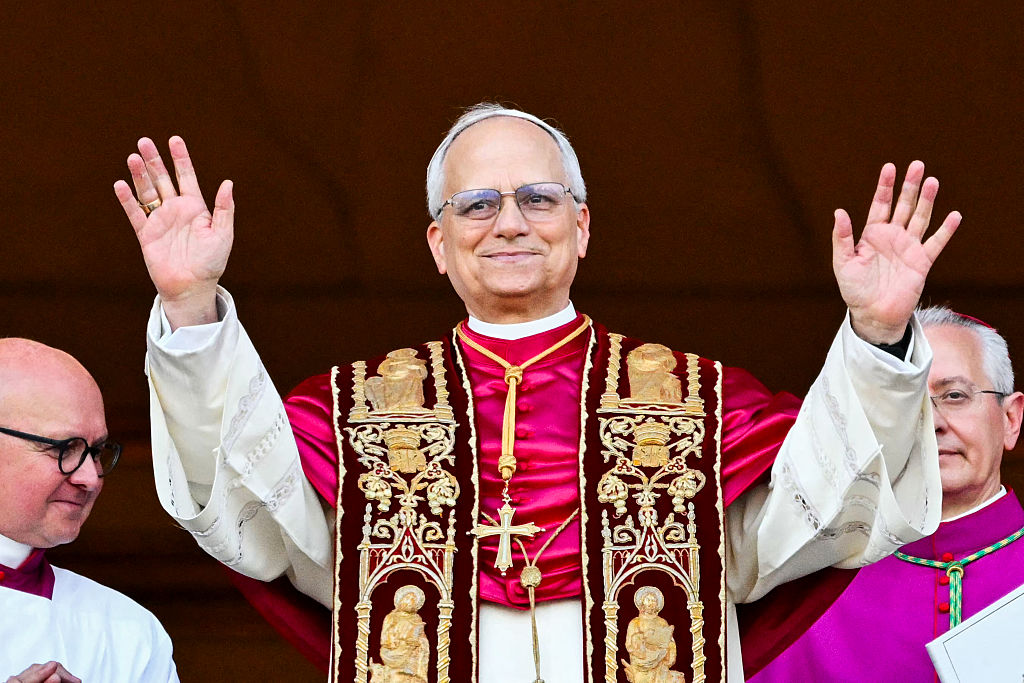At a press conference in October 1981, Ronald Reagan quoted Ibn Khaldun (1332–1406) in support of what is known as supply-side economics. Although the 14th- century politician and thinker wrote extensively about economics and was almost unique among medieval Arab writers in so doing, it is quite ‘marvellous’ writes Robert Irwin, the author of a new intellectual biography of this famous North African, that he ‘should have anticipated American Republican party fiscal policy’.
Irwin wears his immense erudition lightly and gives an often very funny account of how orientalists, historians and modern Arab nationalists have interpreted Ibn Khaldun’s most famous work, the Muqaddima (also known as the Prolegomena) more often than not to suit their particular assumptions. Six centuries after his death, the man of whom the French orientalist Émil-Félix Gautier declared‘il est unique, il écrase tout, il est genial’ continues to be all things to all men. Irwin quotes Michael Brett, an expert on medieval African history who had come to the following conclusion: ‘That Ibn Khaldun continues to mean all things to all men is a measure of his greatness as well as of his ambiguity.’ Ibn Khaldun’s readiness to analyse, theorise and produce generalisations based on evidence gives his writing ‘the perhaps deceptive appearance of modernity’.
The early 19th-century Austrian orientalist Joseph von Hammer believed Ibn Khadoun was ‘an Arab Montesquieu’. Gautier, who taught at the university of Algiers a century ago and deeply despised Arab and Berber culture, stripped Ibn Khaldun of what he saw as his ‘superficially medieval identity’ to reveal him, as Irwin puts it, to be ‘in reality a modern Frenchmen and one moreover who would have approved of the French empire in North Africa’. Needless to say, this is a complete travesty of a deeply religious man who throughout his life expressed great admiration for Berber culture and the Berber monarchs he served in Tunis, Tlemcen, Fes and Granada.
The historian Arnold Toynbee developed the idea that civilisations develop or fail according to a cycle of challenges and responses and found Ibn Khaldun’s pessimism as attractive as his moralising portrait of the inevitable cycle of political decay brought about by luxury and greed. The anthropologist Ernest Gellner saw him as a precursor of Maynard Keynes and the founder of modern sociology, Max Weber; others as prefiguring Machiavelli. More recently, as Irwin reminds us, his ideas were ‘cited with approval in Bruce Chatwin’s novel Songlines and they underpinned Frank Herbert’s Dune cycle of science fiction novels’.
But who really was Ibn Khaldun? He was born in Tunis and lost his parents as well as many of his teachers and friends at the age of 17 to the Black Plague which swept the Maghreb. At 45, tiring of the ‘twisted and violent tale of contested thrones’ that was the reality of Maghreb politics, he retired to a castle in Frenda in Western Algeria to write the first draft of his book. He then moved to Cairo, where he held the office of chief judge of the Maliki rite of Islam before coming in contact, in 1400, with the Mongol leader Timur outside Damascus — an encounter which has been compared with Aristotle’s meeting with Alexander or Goethe’s with Napoleon.
The abundance of ruins around him —from Leptis Magna to Carthage, to Dougga and Timgad — made it obvious that North Africa had once been much more prosperous and more heavily populated than it was in his time. This led him to ask why historians made mistakes: through partisanship, and gullibility, he concluded, as well as ignorance of what is intrin-sically possible.
This led to his attempt to explain the general laws which govern the formation and dissolution of societies. The most famous concept he developed was that of assabiyya (social solidarity) among nomads, what their virtues were and their place in history. (He did not attempt to extend his analysis of the Maghreb to the Middle East or the Mongols.) He argued that after a newly triumphant ruler and his tribal following had installed themselves in a city, an inevitable decay would set in over three or four generations, as the regime slowly came to indulge in luxury and extravagance. As the bonds created by tribal solidarity and nomadic austerity weakened, the ruler would come to rely on mercenaries and, in order to pay for his troops, would start to impose taxes which were not sanctioned by Islam. The pessimism of Ibn Khaldun has a moral and religious, not sociological, basis.
Irwin demonstrates that comparisons between Ibn Khaldun and Machiavelli make little sense, even though The Prince, is as gloomy a work as the Muqaddima and both books were born of political disappointment:
Machiavelli interested himself in the psychology of rulership, the quest for glory, and the role that personality played in high politics. These things did not interest Ibn Khaldun. Machiavelli argued that vices had their virtues and that the ruler might act immorally if necessity demanded it. The intensely religious and moralistic Ibn Khaldun would have found such cynicism abominable.
Nor was he a philosopher working in the Greco-Islamic tradition, as some of his admirers would have us believe:
He had limited access to the genuine writings of Aristotle, and though he conceded that logic certainly had its uses, he thought that the practice of philosophy was dangerous. Maliki jurisprudence furnished a more important model for his historical methodology.
Irwin offers his readers a superb work of intellectual recovery, one which presents Ibn Khaldun as a creature of his time — a devout Sufi mystic, obsessed with the occult and futurology, who lived in a world quite different from our own. He has resurrected for us the medieval Muslim mind.



